What is the
Comprehensive Ranking System (CRS) tool?
The CRS tool assesses your profile and ranks you in the Express Entry pool based on your information. This is a point-based system that will ask you a few questions to understand your level for your skills, education, language ability, work experience, and more. Ranking well in the Express Entry pool will allow you to get your residency within a few months!

Ready to Apply Now?
Once you’ve gotten all of the information you need for the CRS tool or if you’ve completed the application, take the next step and get in touch with us!
We Would Love to Get to Know You!
We understand that everyone’s situation is different.
That’s why we’ve created an evaluation so that we can learn exactly what
it is you’re looking for and to help us get to know you. From there, we can start
getting you on track towards your Canadian Immigration goals.
We would be glad to help you answer any questions!
See our list below of frequently asked questions and find the answer that you’re looking for.
Don’t see your question? Reach out and we’ll get your questions answered!
- Education
- Residency
Your study visa can last for your entire study period and an additional 90 days after that. The extra 90 days are meant to give you time to either prepare to leave the country or apply to stay longer
The required documents for your study permit are proof of acceptance at a Designated Learning Institution, proof of identity (such as a passport), and proof of financial support such as your bank account statement.
If you’re a student who changes from one institution to another, you will need to notify Immigration, Refugees and Citizenship (IRCC). You should go to the IRCC’s online directory to make sure that the new institution is one of the Designated Learning Institutions. If you’re switching from an undergraduate degree to a Masters degree, it’s still a good idea to check that your school is in the Designated Learning Institutions directory. You should make sure you have the authorization to make that change with their permit. For students transferring to an institute in Québec, you’ll need to apply for a Certificate of Acceptance to Québec (CAQ) or a new study permit if necessary.
Yes! If you’re choosing to study in Canada, you can come to visit the institution before making that decision. But if you do so, make sure you have the required temporary visa.
Depending on your situation, you may need to provide some or all of the following documents: educational degrees, diplomas, and certificates, personal identification documents (like birth certificates and/or passports), employment history, proof of employment, and other relevant information. You may need to provide the original documents, copies of the documents, and/or an official translation of documents that will support the application. Additionally, you may need a sufficient bank balance that can support your stay, proof of refugee status, and your language test results.
Anyone has the option to apply for permanent residence! You will need to provide your personal information such as your education level and your work experience in Canada.
If you meet the requirements, it’s not difficult to immigrate to Canada. Canada is always welcoming new immigrants and dedicates its government resources to make the immigration process simple and efficient.
Living costs will depend on which area you’ve decided to live in and your lifestyle choices. According to Immigration, Refugees and Citizenship Canada (IRCC), the expenses from your home make up half of your monthly spending in Canada. Some examples of these expenses include rent, food, clothing, heating and utilities, and internet.





